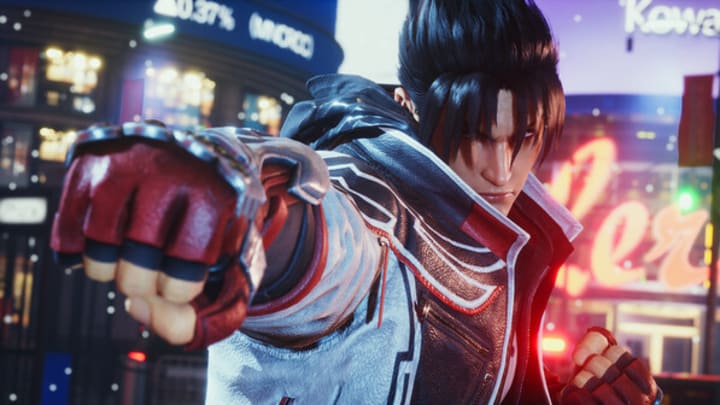Tekken 8, the latest installment in the iconic fighting game franchise, has stirred up controversy with its recent announcement of a new battle pass system. Bandai Namco's decision to implement this monetization strategy has sparked backlash among players, who feel that it detracts from the overall gaming experience.
During a recent Tekken Talk Live event, developers unveiled plans for the "Tekken Fight Pass," which introduces daily and weekly missions for players to unlock in-game items. While the concept of a battle pass is not new in the gaming industry, its inclusion in a paid title like Tekken 8 has raised eyebrows and drawn criticism from the community.
Many players have voiced their dissatisfaction with the introduction of the battle pass system. Some have labeled it as "not consumer-friendly," expressing disappointment that such features are being added post-launch. The sentiment is echoed across various online platforms, with players questioning the need for microtransactions in a full-priced game.
A significant concern among players is the potential impact on character customization, a key aspect of the Tekken franchise. With classic outfits possibly being locked behind the battle pass, players fear that obtaining desired cosmetic items will become either costly or time-consuming.
The controversy surrounding Tekken 8's battle pass is not unique in the gaming industry. Similar debates have arisen in other fighting game communities, such as Mortal Kombat and Street Fighter, regarding the pricing of characters and costumes. These instances highlight a recurring trend where initial excitement for new releases is overshadowed by concerns over monetization tactics.
As players await further updates and clarification from Bandai Namco, the introduction of the battle pass in Tekken 8 serves as a reminder of the ongoing dialogue between game developers and their community. Balancing revenue generation with player satisfaction remains a delicate challenge, one that continues to shape the landscape of modern gaming.
The implementation of the battle pass system in Tekken 8 reflects a broader trend in the gaming industry, where developers seek to maximize revenue through post-launch monetization strategies. While these methods can provide additional content and incentives for players, they also raise concerns about fairness and accessibility.
Players have become increasingly vocal about their expectations for monetization in games, particularly in paid titles like Tekken 8. The introduction of a battle pass system after the game's release has sparked discussions about the value proposition for players who have already paid the full price.
The sentiment on Tekken 8's subreddit and other gaming forums is indicative of a larger debate within the community. Many players view battle passes and microtransactions as more suited for free-to-play games, where they can serve as a source of revenue without impacting the initial purchase cost.
Character customization, a beloved feature of the Tekken series, is at the center of the controversy surrounding the battle pass. Players fear that the most desirable outfits and items will be locked behind a paywall or extensive grinding, undermining the enjoyment of customizing their favorite fighters.
The response from players and the wider gaming community suggests a growing demand for transparency and fairness in monetization practices. As games continue to evolve and incorporate live-service elements, developers must navigate the delicate balance between generating revenue and maintaining player trust.
It remains to be seen how Bandai Namco will address the concerns raised by the introduction of the battle pass in Tekken 8. As players await further updates and responses, the debate surrounding monetization in gaming continues to evolve, shaping the future of the industry as a whole.
The controversy surrounding Tekken 8's battle pass also sheds light on the evolving nature of player expectations and the impact of monetization on the gaming experience. With the rise of live-service games and ongoing updates, developers face the challenge of providing meaningful content while also monetizing their titles effectively.
For players, the introduction of a battle pass system in a paid game like Tekken 8 raises questions about the value they receive for their initial purchase. Many are wary of additional costs for content that was previously included in the base game, such as character customization options.
The dissatisfaction expressed by players underscores the importance of clear communication and understanding between developers and their community. Players want to feel heard and respected, especially when it comes to decisions that affect their gameplay experience and investment in a title.
In response to the backlash, Bandai Namco has the opportunity to engage with the community, address concerns, and potentially make adjustments to the battle pass system. Transparency and player feedback will be key in navigating this situation and finding a balance that satisfies both the company's revenue goals and player expectations.
As the gaming industry continues to evolve, discussions around monetization practices and their impact on games will remain prevalent. Players are increasingly discerning about where and how they choose to spend their money, and developers must consider this when implementing new features and monetization models.
Ultimately, the controversy surrounding Tekken 8's battle pass serves as a reminder of the complex relationship between developers and players in the modern gaming landscape. How Bandai Namco responds to this feedback will not only impact Tekken 8 but also set a precedent for future titles and their monetization strategies.
